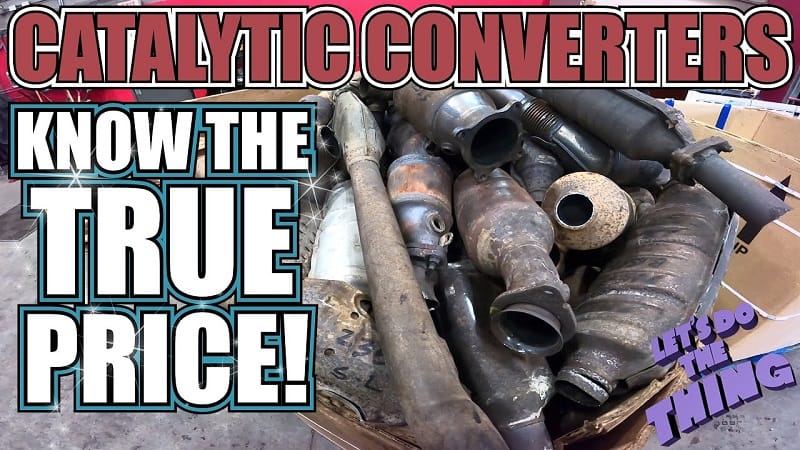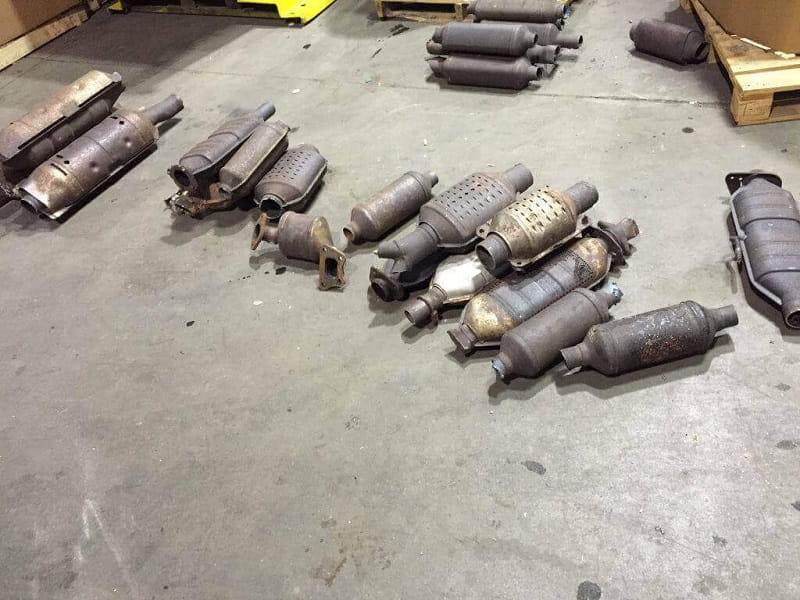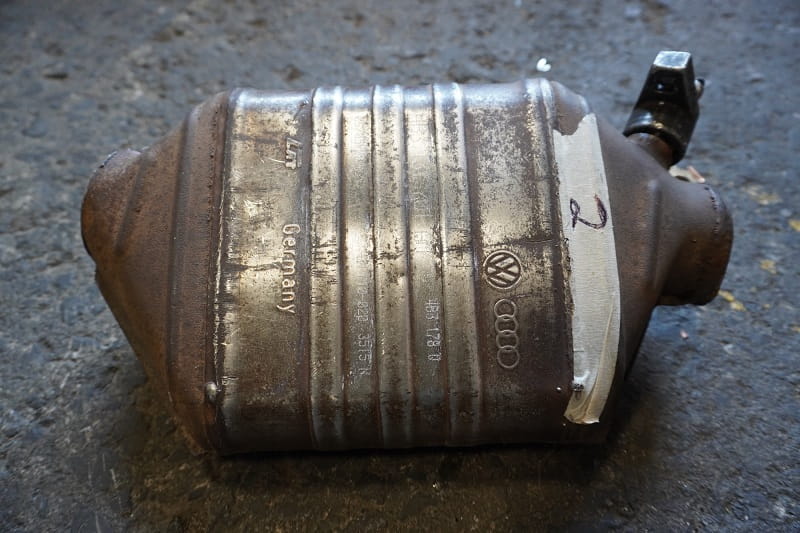This post contains affiliate links. This means I will make a commission at no extra cost to you should you click through and make a purchase [ “As an Amazon Associate, I earn from qualifying purchases.” ]. Read the full disclosure here.
Scrap Catalytic Converter Price in New Zealand: What You Need to Know GuideMechanic.Com In recent years, catalytic converters have become more than just vital components of a vehicle’s exhaust system—they’ve also turned into hot commodities in the scrap metal market. If you’re in New Zealand (NZ) and wondering how much you can get for a scrap catalytic converter, you’re not alone.
With fluctuating metal prices and growing awareness about recycling, many Kiwis are seeking out this potential goldmine—sometimes literally!
In this article, we’ll explore everything you need to know about scrap catalytic converter prices in New Zealand: what affects their value, how to sell them, the legalities involved, and tips to maximize your return.
See Also: Honda CR-V Catalytic Converter Price
Scrap Catalytic Converter Price in New Zealand: What You Need to Know
What Is a Catalytic Converter?

Before diving into prices, let’s quickly review what a catalytic converter is. It’s a component of a car’s exhaust system that helps reduce harmful emissions by converting gases like carbon monoxide and nitrogen oxides into less harmful substances. To do this, the converter contains precious metals—most notably:
- Platinum (Pt)
- Palladium (Pd)
- Rhodium (Rh)
These metals are rare and expensive, which is why catalytic converters are so valuable—even as scrap.
Why Catalytic Converters Have Scrap Value
Even when a catalytic converter no longer functions in a vehicle, the precious metals inside it often remain intact. These metals can be extracted and recycled, which is why scrapyards, recyclers, and metal processors are willing to pay for them.
In New Zealand, the value of a scrap catalytic converter is mainly determined by:
- The amount and type of precious metals it contains
- The make, model, and year of the vehicle
- Current global metal prices
- The condition of the converter
- The buyer or scrapyard’s rates and policies
Current Scrap Catalytic Converter Prices in NZ (2024–2025 Estimates)
As of early 2025, the average price for a scrap catalytic converter in New Zealand can range from:
- NZD $100 to $500 for common vehicle converters
- NZD $600 to $1,500+ for high-value or OEM converters (especially from European or luxury vehicles)
These are general estimates and can change depending on market conditions. For example:
Type of Converter Approximate Scrap Value (NZD)

Toyota Corolla (Standard) $120 – $250
Honda CR-V (OEM) $200 – $400
BMW / Mercedes (OEM) $600 – $1,200
Diesel Converters / DPFs $100 – $400
Aftermarket Converters $20 – $100
👉 Note: Aftermarket catalytic converters typically contain less precious metal and are therefore much less valuable in the scrap market.
How Are Scrap Catalytic Converters Priced?
Catalytic converter prices are mostly influenced by the following precious metal market rates (as of 2025):
- Platinum – around NZD $1,600 per ounce
- Palladium – around NZD $2,000 per ounce
- Rhodium – highly volatile, often exceeding NZD $20,000 per ounce
Since these metals are measured in grams within each converter, even small amounts add up in value. However, not all converters are created equal. Some contain more of one metal than others depending on the vehicle’s emissions standards and manufacturer.
Where to Sell Scrap Catalytic Converters in New Zealand
You have several options when it comes to selling your scrap catalytic converter in NZ:
1. Local Scrap Yards
Most large scrap yards in cities like Auckland, Wellington, Christchurch, and Hamilton accept catalytic converters. Some will evaluate and quote a price on the spot based on weight and visual inspection.
2. Metal Recycling Companies
Specialized metal recyclers may offer better prices than general scrap yards because they have equipment to extract precious metals more efficiently.
3. Online Buyers / Exporters
Some businesses in NZ or Australia specialize in buying converters and exporting them for metal recovery. These buyers often require photos, part numbers, or serial codes for accurate quotes.
4. Car Wreckers
If you’re scrapping your whole car, wreckers may offer extra payment for the converter or include it in the value of the vehicle.
How to Identify a Valuable Scrap Converter
If you want to get top dollar, knowing what kind of catalytic converter you have is key. Here’s how to identify a valuable unit:
- Check the serial number – Often found stamped on the metal shell.
- Note the vehicle make, model, and year – OEM converters from brands like Toyota, BMW, and Mercedes tend to be more valuable.
- Avoid selling aftermarket units unless clearly labeled—they typically fetch lower prices.
You can also take a photo and send it to online buyers or use converter price lookup tools available through some buyers’ websites.
Legal Considerations in NZ

Due to rising theft of catalytic converters globally, some governments have introduced strict regulations. In New Zealand:
- It is legal to sell a used catalytic converter, provided you can prove ownership or legal possession.
- Some buyers may require ID and vehicle details to prevent theft-related transactions.
- You should never buy or sell stolen converters—doing so can lead to criminal charges.
Pro tip: If you’re a mechanic or recycler, keeping accurate records of where converters come from is essential to avoid legal trouble.
Tips to Maximize the Value of Your Scrap Catalytic Converter
- Don’t remove the ceramic core – A complete converter with its honeycomb core intact is worth much more.
- Clean off dirt or debris – This makes identification and grading easier for the buyer.
- Avoid cutting or smashing the unit – Damaged converters may be rejected or valued lower.
- Know your part – Identify the serial number and whether it’s OEM or aftermarket.
- Get multiple quotes – Prices vary greatly from one buyer to another. Shop around.
Consider holding during low metal markets – Prices for rhodium, platinum, and palladium fluctuate. If prices are low, it might be worth waiting.
Environmental Benefits of Recycling
Selling your scrap catalytic converter isn’t just profitable—it’s environmentally responsible. Recycling these components:
- Reduces the need for new mining of rare metals
- Decreases pollution
- Helps keep potentially harmful waste out of landfills
New Zealand, like many countries, is working towards a more sustainable automotive industry, and proper recycling of catalytic converters plays an important role in that effort.
Final Thoughts
If you have a scrap catalytic converter in New Zealand, you’re likely sitting on something of significant value. Depending on the type, brand, and metal content, you could earn anywhere from $100 to over $1,000 NZD.
Understanding what drives the price—especially precious metal content and market demand—can help you get the most out of your sale.
Make sure to research your part, get quotes from multiple buyers, and stay informed on metal market trends. And most importantly, ensure your transaction is legal and ethical. With a bit of effort, recycling your catalytic converter can be a win-win for your wallet and the environment.
- BMW Catalytic Converter Price: What You Need to Know - April 24, 2025
- Scrap Catalytic Converter Price - April 24, 2025
- Honda CR-V Catalytic Converter Price - April 24, 2025
